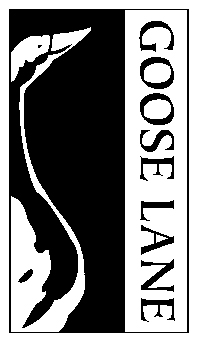Airborne author Jonathan Rotondo reflects on some recent moments during his book tour. Enjoy!
If you were not looking for it, you would miss it.
The Hawkesbury East Airport sits between County Road 17 and the Ottawa River, just a few kilometres east of the town from which it takes its name. From the road, it looks like private land. There’s a mailbox serving a wooden, ranch-style home with a red roof and what look like a pair of outbuildings. A large billboard advertises a nearby campground. A small sign tacked to an unused billboard frame is the only clue to the land’s true purpose, but you’d be forgiven if you missed it.
In fact, my host for this early October morning — Jacques — has offered to meet me at the nearby Tim Hortons and guide me to the field.
There are two ways to drive in — along a dirt road roughly paralleling the highway or up a steep gravel driveway. We opt for the dirt road. I guide my Volkswagen station wagon through the bumps and depressions, filled with the overnight rain, around a stretch of wooden fencing and over the hump of a grassy knoll.
There are four airplanes sitting in the yard between the house and the outbuildings. Their wings, covered in a fine layer of frost, twinkle in the honeyed rays of a low-slung sun. The dirt road ends in the shadow of a long, squat building I assume to be the clubhouse. Through the foggy windows, I can see people milling about. Beyond, is the airport’s smooth grass runway and a scattering of basic lean-to hangars with open fronts sure to house the eclectic mix of airplanes naturally drawn to a place like this.
Jacques and I push through the door into the warmth of the clubhouse and are greeted by the sounds and smells of breakfast — eggs, sausage, and home fries — sizzling. Jim, the airport’s new owner, and his two sisters are working the grill. A pair of coffee urns gurgle in one corner as a woodstove crackles in another. The building is dominated by a long, farmers’ table where, on the first Saturday of every month, attendees fly (or drive) in from all over eastern Ontario and western Quebec to sit down and share breakfast like a family.
As we eat, the din of conversation in the clubhouse is periodically pierced by the hum and rumble of an aircraft approaching the airport to land. As each airplane glides in over the western end of the field to settle gently onto the grass, a remarkable thing happens. Conversations abruptly cease and all eyes gaze through the window to watch each airplane land. The airplanes are as recognizable as the people who fly them. In a few moments, as the newcomer walks into the clubhouse, a breakfast tray is being prepared, several people will call out a greeting and shuffle down the long benches to make room and a ten-dollar bill will be dropped into the peanut butter jar sitting on the table.
All told, perhaps 50 people have come and gone over the course of the morning and about half are present for my talk at any given moment. I’ve done lots of these kinds of events — talks, signings, interviews — since the book launched in March, but this one is different. I’ve brought an album with photographs chronicling the story from the late ’70s through to today, which is being passed from person to person around the room.
Airborne is my family’s story, and I’m fortunate to be in a position to share it with others. Despite years working as a journalist and the fact that I appear to be comfortable speaking publicly about what is a deeply personal account of my father’s life and our relationship, it isn’t easy for me. However, at every event I’ve done in support of the book, perfect strangers have told me stories that are eerily similar to my own. When I started this journey, my hope was that Airborne would help others dealing with loss to positively manage their own experiences or that it would inspire them to set down and record their own histories before they are lost to time. It’s a common and clichéd sentiment, I know, but that doesn’t change the fact that I’m getting the feedback I had hoped I would. That makes me feel good. And I’m thankful for this whole experience and the people who’ve made it possible.
